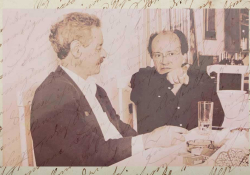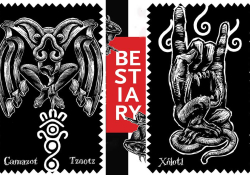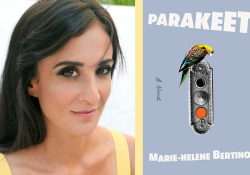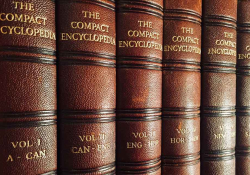Asian Traumatic Poetics
(part 1)
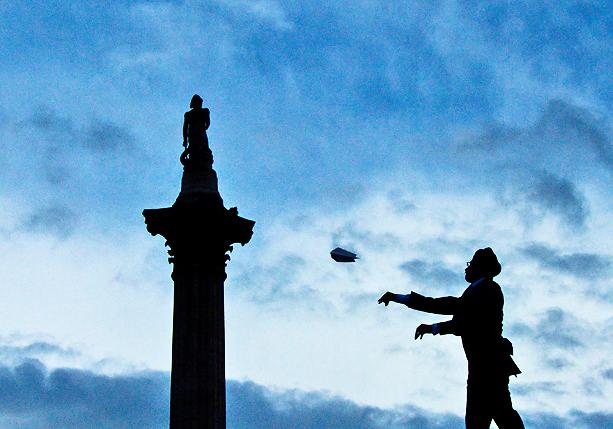
In this post and one that will follow next week, I will explore the representation of personal trauma in poetry published in Cha: An Asian Literary Journal. Cha is a Hong Kong-based online publication established in 2007 that publishes primarily Asian-themed creative works and works done by Asian writers and artists. I feel that Cha is an ideal forum for investigating the notion of Asian trauma, not only because of the journal’s regional focus, but also because poems published in periodicals, online or otherwise, seem to be more “urgent” and “immediate,” in the sense that very often a relatively short period of time separates the writing of the poem and its publication. The fact that poets see Cha (and other similar journals) as a suitable venue to publish works that express at times deeply personal traumatic themes, apart from showing their eagerness to be published, also, I believe, speaks to a strong desire to be read and heard in a more intimate and immediate setting.
I would like to focus mainly on domestic and personal traumatic experiences rather than political and collective ones, bearing in mind that the personal is, of course, also inevitably political and that the accumulation of dramatic personal experiences contributes to and creates collective trauma. Loosely defined, “trauma” refers to a distressing, disturbing, and shocking experience, one that is possibly characterized by belatedness and regret. Personal traumatic experiences often lend themselves to poetic expression and exploration, such as fleeing one’s own home or country, witnessing death, being sexually or physically abused, suffering an accident, political prosecution, or even imprisonment, to give just a few examples.
In this installment, I will look closely at two poems published in Cha that discuss and address uniquely Asian traumatic experiences: the sense of estrangement one feels in a fast-paced Asian city like Beijing, and the agony of waiting at an embassy to renew a dual Malaysian-British passport.
“Workers Disturb My Sleep in Beijing”
I hear the workers chattering late, right near
my window; finding sleep with China outside,
teeming immensity of land and people;
this morning, I realise they had been planting a tree.
(Issue 14, Cha)
Anyone who has spent time in contemporary Beijing will identify with Salvatore Attardo’s poem. In just four lines, he both captures the city’s relentless development and manages to undermine our preconceived notions about the country’s modernization.
At the beginning of the poem, the persona, half-asleep, is disturbed by noise of “workers chattering” (L1) immediately outside his window. This is perhaps a regular occurrence as he does not even bother to discover what exactly is happening. Although late-night noise is a constant in all cities, here it also speaks to China’s restless progress as work is expected to carry on late into the night, even on projects that do not strike one as pressing. The reader imagines that outside the window, Beijing’s demolition and redevelopment continues unabated, that buildings are being torn down and thrown up, that the past is making way for the present.
The poem suggests a sense of estrangement between the persona and “China outside” (L2). This disconnection may derive from his being a foreigner who feels separated from the country’s “teeming immensity of land and people” (L3); inside his apartment, the persona is outside of China. Or perhaps he is a local who feels alienated from his own city, not only because it has disturbed his sleep, but because he no longer recognizes its ever-changing urbanscape.
Planting a tree late at night is comic: the task hardly seems an emergency requiring nocturnal attention.
If the first three lines play directly to our preconceptions of China’s rapid modernization, the final one provides a turn that makes the poem. After the darkness of the evening, the persona realizes the workers “had been planting a tree” (L4), a realization that subverts the reader’s expectation of finding the skeleton of a new building or other rushed construction. In this environment, the symbol of the tree is both ludicrous and optimistic. Planting a tree late at night is comic: the task hardly seems an emergency requiring nocturnal attention. There is also something ironic about having to put a tree into the city at all. Nature must be introduced into this largely man-made environment. In this sense, the plant becomes less part of nature and more part of Beijing’s development. But the tree is also a hopeful sign. It may be a symbol, albeit a small one, of a new and growing environmental consciousness. Or perhaps it is just a nice piece of greenery for all to enjoy. Either way, a tree is a tree is a tree. And that is a good thing.
* * *
“45 Belgrave Square”
We waited under the buzz of a rotating fan,
sheets neatly printed against palms,
waiting for my annual summons to citizenship.
Dad led the way, preceding me by thirty years’ toil
under a hot tropical sun as we sat under
the crescent gaze of a woman with sharp brows
and a glorious headscarf striped across her forehead.
Passports were handed back awaiting stamps
of approval and the tentative claim
to become native again lasted well into the day.
Flicking through serried pages of childhood exploits
with no visible history, she looked deep beneath
my skin and seethed. “You don’t have the right stamp.”
Round eyes met almond eyes and the pegs didn’t fit,
which meant I was an illegal in England unless
“you have a British passport,” she glowered,
blue white asterisks overlapping her blood-shot eyes.
Despite our heavy protests my rights
to Malaysia were revoked and I became alien
to this colonial enclave in an excolonial Empire.
Under the whirring fan, I saw my childhood
sucked out of this dual existence,
leaving me dry from the orange tipped sunsets
that tasted of innocence and the luscious peel
of mango that shrivelled up like a disused tongue.
A fruit sagging by the lull of evening.
Attendant now in my own country,
I retraced my way back into a realm inherited
by English hordes and partisans bereft
of nationhood and servility.
As we limped down Trafalgar a sudden shadow
threw its full length across my path.
Nelson himself stood proud across my brow,
signalling do-or-die invites and hailing his
newest recruit to hoist the colours.
Some familiar line from an old textbook
gripped me as he flashed a crooked grin,
the lesson of an age struck from me long ago:
how “England expects every man to do his duty,”
how truly mankind is press-ganged into service.
(Issue 6, Cha)
Jason Lee’s “45 Belgrave Square” is a miniature drama in four acts about a narrator with dual Malaysian and British citizenship trying to renew his passport at the Malaysian High Commission in London, which is located at 45 Belgrave Square. That Malaysia does not allow its citizens to have dual citizenship provides the conflict at the heart of the poem. Will the persona be granted an extension of his passport or will he be discovered and lose his rights to the country?
The opening lines provide the poem’s establishing shot: “We waited under the buzz of a rotating fan, / sheets neatly printed against palms, / waiting for my annual summons to citizenship” (L1–L3). For anyone who has ever had to wait in a government office for a passport or other form of documentation, the scene should be familiar and the mixture of both monotony and apprehension, recognizable. The persona sits nervously in a respectful, almost submissive manner with “sheets neatly printed against palms,” waiting for a “summons” which can ultimately decide his fate. The tension of the scene is not only highlighted by the buzz of the rotating fan, but the repetition of its movement also underlines the monotony of the experience. The persona is destined to wait both bored and nervous until called, but perhaps for the persona, this experience is particularly tense. As we will see later, there is a deception at the center of their visit.
We learn a little bit about the persona and the situation in the following lines: “Dad led the way, preceding me by thirty years’ toil / under a hot tropical sun as we sat under / the crescent gaze of a woman with sharp brows / and a glorious headscarf striped across her forehead” (L4–L7). The speaker, who is the son of someone who has lived in the tropics but whose age we do not know, seems to follow his father’s lead in this matter. Perhaps the son is still young and thus under the care of the parent. Or perhaps he lets the father lead because of his greater experience dealing with the Malaysian authorities and the country’s way of life, a possibility suggested by “preceding me by thirty years’ toil / under a hot tropical sun.” Whichever possibility you accept, however, it seems the father has been through this process before. Although the poem is ostensibly set in London, words such as “hot tropical sun,” “palms,” and “the buzz of a rotating fan” give a sense that the action could be happening in Malaysia itself. The characters may also be figuratively feeling the heat as they sit under “the crescent gaze” of a woman with “sharp brows / and a glorious headscarf striped across her forehead.” She is the official who will decide the father and son’s future. The poet’s use of the term “crescent” to describe the woman’s gaze is well-chosen, reflecting as it does both the Muslim nature of the country and its flag. After passports are “handed back awaiting stamps / of approval” (L8–L9), the son waits for their “tentative claim / to become native again” (L9–L10). The agony of this prolonged bureaucratic torture will be an endless moment which lasts “well into the day” (L10).
In the second stanza, the confrontation of the drama is introduced. The scene is narrated in a type of stream of consciousness, in which the persona imagines what is going on and what the official may be thinking: “Flicking through serried pages of childhood exploits / with no visible history, she looked deep beneath / my skin and seethed” (L11–L13). The persona is aware that his documents provide scant proof of his Malaysian identity, that they offer “no visible history” of his time in the country. Whether the speaker knows that he is actively deceiving the official or whether he is still under the guidance of his father and thus only has a sense that something is wrong is not entirely clear. That the official is indeed skeptical is revealed when she announces: “You don’t have the right stamp” (L13). Within the poem, this statement is incorporated with the persona’s own narration, pointing to a similarity in their thinking. This suggests that the persona is complicit in the deception, that he is old enough to know what is going on. There is a sense that he is lying, she suspects that he is lying, and he suspects that she suspects. If the official did not know exactly what is going on, she quickly figures it out. Again, we see the conflation of the persona’s and the official’s voices in the following moment of realization: “Round eyes met almond eyes and the pegs didn’t fit, / which meant I was an illegal in England unless ‘you have a British passport,’ she glowered” (L14–L16). This moment is beautifully handled. It is almost as if they are completing one another’s thoughts, leading to the inevitable discovery of the family’s secret: that the persona has a British passport and is thus not eligible for a Malaysian one. Once this double identity is exposed, there is only one possible conclusion, that despite their “heavy protests” (L18), the persona’s “rights to Malaysia” (L18) will be “revoked” (L19). What exactly the father’s legal status is is not made clear in the poem, although it makes for intriguing speculation.
The embassy is a metaphorical stand-in for the country. Or does it refer to the boy’s own potential life within Malaysia, represent his lost ability to return to live in that country?
The fallout of the discovery is that the persona becomes “alien / to this colonial enclave in an excolonial Empire” (L19–L20). What the “enclave” refers to is open for interpretation. Does it represent the High Commission? An embassy after all is a kind of minicolony within another country. Does it represent Malaysia itself? Perhaps it is both: the embassy is a metaphorical stand-in for the country. Or does it refer to the boy’s own potential life within Malaysia, represent his lost ability to return to live in that country? Maybe the phrase “became alien / to this colonial enclave” signifies the slipping away of his right to go back to the former dependency as a kind of neocolonist, where he could lead a life of relative ease and prosperity.
The third stanza reveals that apart from grieving his loss of dual citizenship, the persona also laments the end of his connection to the home of his youth: “Under the whirring fan, I saw my childhood / sucked out of this dual existence” (L21–L22). The fan from earlier in the poem has sped up, moving from simply “rotating” (L1) to “whirring” (L21), a change that reflects the persona’s own state of mind, in which everything seems to have quickened because of the crisis. The fan’s new speed makes it capable of sucking away his “dual existence.” The speaker is now left disconnected from his childhood experiences, “dry from the orange tipped sunsets / that tasted of innocence and the luscious peel / of mango that shrivelled up like a disused tongue. / A fruit sagging by the lull of evening” (L23–L26). Severed from an innocent youth in which he ate mangoes in the tropical evenings, the persona compares himself to the same fruit drying and sagging. The “disused tongue” also suggests that the persona may be forgetting a local language spoken in his youth but which he no longer uses in Britain. The lines resonate with Langston Hughes’s “Harlem,” in which one of the metaphors for a delayed dream is a raisin drying up in the sun.
In the final scene, the persona and his father leave the embassy and return to the city, “a realm inherited / by English hordes and partisans” (L28–L29). As they “limped” (L31) down to Trafalgar Square, he is reminded of the nature of nationhood and duty by Nelson himself who “stood proud across my brow, / signalling do-or-die invites and hailing his / newest recruit to hoist the colours” (L33–L35). Frustrated and angry by his loss of Malaysian citizenship, the persona feels trapped by the realities of his situation and forced into a kind of service by his homeland. He recalls a line from “an old textbook” (L35) which reads: “England expects every man to do his duty” (L39), a sentiment that perhaps provides an echo of the “old lie” in Wilfred Owen’s “Dulce et Decorum Est.” The closing image of the poem provides a dramatic summation of the persona’s feelings about the nature of citizenship and our bonds to our native countries: “how truly mankind is press-ganged into service” (L40). The drama ends with the persona and his father standing under Nelson’s Column, a reminder that our destinies are largely dictated by the location of our birth.

